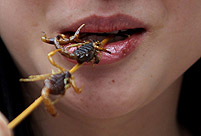The Chinese government on Tuesday vowed to strengthen management of public funds used to ensure people's livelihood, such as poverty-relief funds.
Poverty-relief funds have long been a safety net for the poor and a catalyst for poverty reduction in China, according to a statement released after a State Council executive meeting presided over by Premier Li Keqiang.
Recent audits have found that some localities falsified eligibility information to claim the funds, embezzled the funds, failed to channel the funds to needy places, and executed weak supervision over the use of the funds, according to the statement.
The statement also said that the government vows to severely crack down on embezzlement and corruption in managing such funds and to make sure the funds will benefit needy people.
To effectively manage such funds, the government decided to clarify the responsibilities of authorities at different levels. County-level governments are responsible for assigning funds to various poverty-reduction projects, while provincial and city governments should act as supervisors.
Individuals in need of poverty relief will be entered into a database so that funds can flow to pinpointed villages and households.
Innovative fund management methods, such as government procurement of social services using the funds and financial institution involvement in poverty reduction projects, were encouraged at the State Council meeting.
Apart from such "safety net" funds, the State Council urged sound management of all public assets, particularly those pertaining to social security, basic living allowance, medical insurance and affordable housing.
All departments under the State Council were ordered to prevent corruption and abuse of public assets, and auditing departments were urged to extend their work to all government-funded projects.
The government will boost supervision over fund use through third-party evaluation and increased transparency in an effort to "build a clean government and to make sure the government lives on a shoestring budget while the people live comfortably," according to the statement.
The State Council also urged efforts to fully capitalize on stock assets and put idle funds to use to help control government deficits.
Also at Tuesday's meeting, a regulation was passed targeting pollution resulting from poultry and livestock husbandry.
According to the regulation, husbandry-generated pollution has become the major source of environmental pollution in the countryside, and tackling the problem will help restructure the industry and prevent avian influenza.
The State Council ordered incentives be handed out to encourage centralized and standardized husbandry, and vowed to hold polluters accountable and support recycling and decontamination of husbandry waste.
 2013 Colour Me Rad 5K run held in Canada
2013 Colour Me Rad 5K run held in Canada China's destroyer Qingdao sails out of Sydney Harbor
China's destroyer Qingdao sails out of Sydney Harbor Chinese tycoon aims to restore London's Crystal Palace
Chinese tycoon aims to restore London's Crystal Palace A staple of southern Chinese people
A staple of southern Chinese people Typhoon Fitow approaches China
Typhoon Fitow approaches China Tourists take pictures beside Qinghai Lake in Xining
Tourists take pictures beside Qinghai Lake in Xining New couples take wedding photos during holiday
New couples take wedding photos during holiday Serena Williams stumbles through to quarterfinals
Serena Williams stumbles through to quarterfinals Thailand Mobile Expo 2013 kicks off
Thailand Mobile Expo 2013 kicks off Photo collection of Chinese Navy
Photo collection of Chinese Navy Dense haze envelops N China
Dense haze envelops N China Twins Culture Festival kicks off in Beijing
Twins Culture Festival kicks off in Beijing UNESCO world heritage site: Montale Tower
UNESCO world heritage site: Montale Tower Egyptian protesters clash with police amid war anniv. celebration
Egyptian protesters clash with police amid war anniv. celebration Serena Williams wins second China Open title
Serena Williams wins second China Open titleDay|Week|Month